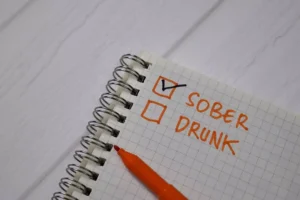
However, it can also perpetuate the cycle of addiction and make it challenging for you or your loved one to seek help. It is essential to recognize the signs of alcoholic denial and understand the psychological factors that drive it. This understanding can guide you in finding appropriate support and resources for overcoming denial and addressing the alcohol use disorder effectively. Recognizing denial as the first step in addressing alcoholism is crucial. Only by acknowledging there’s an issue can someone begin taking steps toward recovery. It can be seeking professional help, joining support groups like Al-Anon or Alcoholics Anonymous (AA), talking openly about concerns, or attending educational programs for those grappling with substance abuse disorders.
Renewal Center for Ongoing Recovery
Stigma is one reason people struggle to admit to having a drinking problem. Addiction is commonly viewed as a shameful character flaw, resulting in a fear of social rejection. Unfortunately, society judges and stereotypes those who have substance use disorders, and in turn those who struggle with substance use disorders internalize society’s messages. People who suffer from substance use disorders often struggle to admit to themselves that they have an issue, out of fear that this problem would make them weak or immoral. And denial doesn’t only come from people who struggle with drinking; their family and friends are sometimes in denial too.
Residential treatment programs
- Many people with alcohol problems and their family members find that participating in support groups is an essential part of coping with the disease, preventing or dealing with relapses, and staying sober.
- For some people, outpatient programs with therapy treatment sessions are a great way to start the recovery journey.
- By rationalizing their behavior, individuals in denial avoid facing the truth about the negative effects of their alcohol consumption and maintain a sense of control over their drinking habits.
- If you know someone with alcohol use disorder (AUD), it’s natural to be concerned and want to help.
- Unconditional love and encouragement will go a long way in helping your loved one find freedom from alcoholism but, ultimately, the desire to change has to come from within.
- Your health care provider or mental health provider will ask additional questions based on your responses, symptoms and needs.
You may use denial as a way to protect yourself from having to see, deal with, or accept the truth about what’s happening in your life. Alcohol use disorder can include periods of being drunk (alcohol intoxication) and symptoms of withdrawal. At The Retreat, we believe in grounding our program on spiritual principles like those found in Alcoholics Anonymous (AA).

Do’s & Don’ts of Helping Someone in Alcoholic Denial
Many family members of someone struggling with alcohol dependency try everything they can think of to get their loved one to stop drinking. Unfortunately, this usually results in leaving those family members feeling lonely and frustrated. For some, blaming others protects them from taking responsibility themselves. Denial, blame and dishonesty may anger loved ones, but it is important to understand that these actions are a product of the disease rather than a true representation of the person’s character.
My Loved One Needs Help
- But staying in denial is harmful because it prevents you from seeking help or addressing a situation.
- Not everyone who has alcohol use disorder hides or denies they misuse alcohol.
- If your pattern of drinking results in repeated significant distress and problems functioning in your daily life, you likely have alcohol use disorder.
- Societal and cultural factors can also play a role in an alcoholic’s denial.
It may be difficult for someone who is in denial about their addiction to be willing to seek out some of the treatment options listed above. Additionally, speaking with a therapist, talking to people who are in recovery, confiding in alcoholism and denial their physician, and exploring recovery resources may empower a person in denial to seek help on their terms. Education plays a crucial role in increasing awareness of the consequences of alcoholism, particularly for those in denial.
- During an intervention with a loved one, family members show love and support while setting clear boundaries around substance abuse and consequences related to drinking.
- By addressing both family and societal influences, we can support and nurture the journey to recovery.
- Second, denial is a broad concept lacking general agreement regarding the optimal definition, and the current analyses focus on only one of several types of denial that relate to substance use and problems.
- It’s essential to explore all available options and ensure that the chosen facility is equipped to meet your needs and provides evidence-based methods for treating alcohol use disorders.

People with alcohol use disorder may experience denial, which can delay treatment. People who are high functioning with a drinking problem “seem to have everything together,” says Matt Glowiak, PhD, LCPC, a certified advanced alcohol and drug counselor. They’re able to successfully manage tasks around their work, school, family, and finances, he says. By Buddy TBuddy T is a writer and founding member of the Online Al-Anon Outreach Committee with decades of experience writing about alcoholism.
Societal and Cultural Factors
This could happen in the form of an overdose or other major health event, legal trouble, or relationship strain or loss. If your pattern of drinking results in repeated significant distress and problems functioning in your daily life, you likely have alcohol use disorder. However, even a mild disorder can escalate and lead to serious problems, so early treatment is important. Like every alcoholic I have watched die, she deserves my humble compassion and understanding.


This holistic approach allows participants to gain insight into their drinking patterns without judgment or shame. Understanding the reasons behind alcoholism denial can shed light on why individuals refuse to acknowledge their drinking problem. Shame, societal views, lack of education, neurological https://ecosoberhouse.com/ factors, and the influence of friends and family all play significant roles in perpetuating denial. In conclusion, denial of a general alcohol problem by individuals who admitted to multiple AUD criteria items was quite common in the SDPS, despite prodigious maximum drinking quantities.